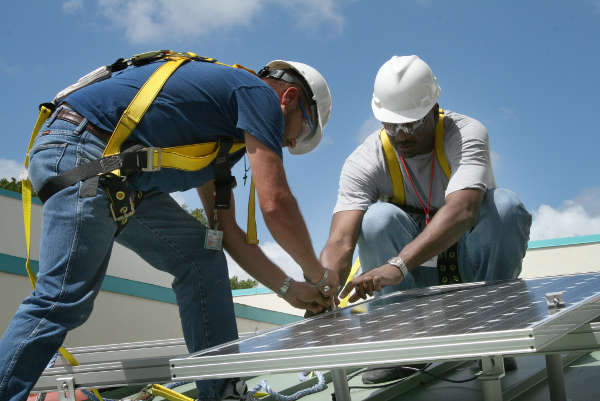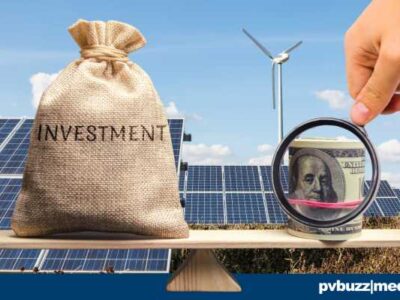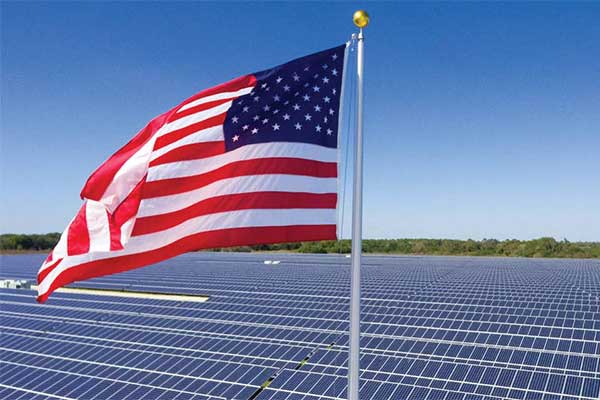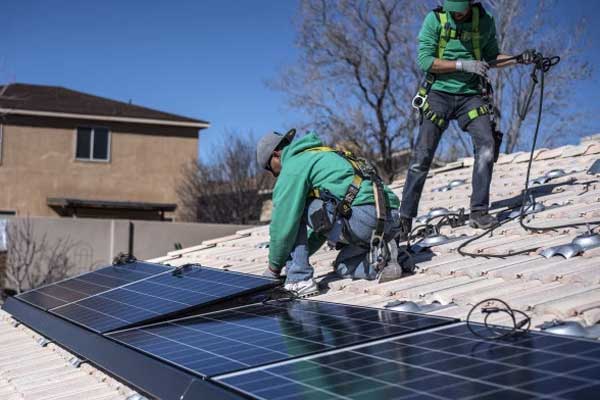Solar energy is killing coal, despite Trump’s promises
The rapidly falling cost of solar energy is going to make it difficult for President Trump to deliver on his promise to put coal miners back to work. Trump has taken steps to ease the burden on coal country by ripping up environmental rules and pledging to withdraw the United States from the Paris climate accord.
But those deregulatory steps do little to offset the mounting long-term challenge that coal faces from cleaner forms of energy, especially solar.
America’s hungriest wind and solar power users: big companies
Major U.S. corporations such as Wal-Mart Stores Inc (WMT.N) and General Motors Co (GM.N) have become some of America’s biggest buyers of renewable energy, driving growth in an industry seen as key to helping the United States cut carbon emissions.
Last year nearly 40 percent of U.S. wind contracts were signed by corporate power users, along with university and military customers. That’s up from just 5 percent in 2013, according to the American Wind Energy Association trade group. These users also accounted for an unprecedented 10% of the market for large-scale solar projects in 2016, figures from research firm GTM Research show. Just two years earlier there were none.
The Cost of Solar Will Drop Another 25% by 2022
Solar energy is becoming much cheaper all over the world according to a GTM Research study by solar analyst Ben Gallagher. He predicts that the price of constructing solar power technology will decrease by 4.4 percent each year, meaning that by 2022 the price of projects will have dropped by 27 percent. This decrease in cost is causing more countries to adopt solar power as a viable means of supplying energy.
Gallagher attributes the falling price to the globalization of the tools and resources needed to construct the systems — like the investors, labor cost, modules, and trackers — which has meant that “regional hardware pricing [has] been eroded by market forces,” he wrote in the study.
Tariffs on Solar Panels Could Slow Industry Growth by 66%
A trade complaint asking the Trump administration to impose tariffs on solar panels could devastate the U.S. industry, wiping out two-thirds of solar systems forecast to be installed over the next five years, according to a report Monday by GTM Research. The case, filed by bankrupt panel manufacturer Suniva Inc., would cause equipment prices to spike in the U.S. and prompt installations to fall to as low as 25 gigawatts from 2018 to 2022, down from GTM’s current forecast of 72.5 gigawatts, GTM said. The report is the first on how tariffs may affect the industry.
Suniva, based in Georgia, brought the case to the U.S. International Trade Commission in April after filing for Chapter 11, saying tariffs are necessary for domestic manufacturers to compete with a surge of cheap panels from Southeast Asia. It’s asking for duties of 40 cents a watt for solar cells, which now sell for 25 cents to 33 cents a watt. Much of the solar industry has objected, saying cheap panels have been the key to growth in the U.S.














I find the statement that solar energy is killing coal very misleading. Major vial plants are being replaced primarily by natural gas plants. To make the argument fairly, you need to compare the kWh produced by the two sources. In my view over hyping the capabilities of solar harms the industry in the long term. A good example of that is Ontario Canada where the public has now turned against renewables. Btw, why do solar propensents not take a dimmer view of the expansion of natural gas plants? It is still a fossil fuel with CO2 emissions.